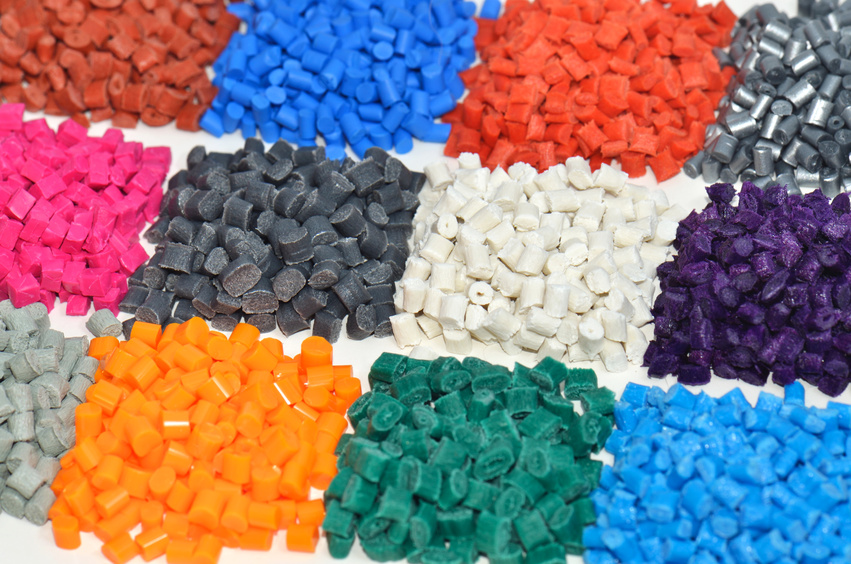Plastic additives are chemicals added in a polymer to modify its properties. The polymers used in plastics are combined with monomeric units and are not in their pure form, but are harmless. The objective is to improve the processing characteristics and properties of plastics and to enhance performance. These monomers are known as plastic additives and can be classified as reinforcing fibres, coupling agents, stabilizers, colorants, fillers, processing aids, flame retardants, peroxides and antistatic agents. Plastic additives enable safe handling of the plastic during the manufacture of finished products. The stabilizing plastic additives are halogen stabilizers, ultraviolet absorbers, antioxidants and biological preservatives. Also, there are processing aids such as lubricants and flow controls.
The end-uses of plastic additives are in the plastic industry and its products.For example, fire retardation plastic additives are added to polymers to break them down. This ensures reduced viscosity, which is essential for moulding the plastics into various finished products. Another example is that of ultraviolet absorbers, which are added in plastic pots used in plantations, to enable resistance to ultraviolet rays. Anti-microbial plastic additives are also used in this product as well as other products, as microorganisms can decompose plastics into monomers. Lubricants minimizes both internal and external friction, helps mould release and enhance mould flow. Fillers are used to increase the volume of the plastic available and to make it cost-effective. Also, temperature resistance of plastics is enhanced by plastic additives. Additives facilitate the use of plastic in space craft due to the ability to sustain at high temperatures.Plastic additives have a large number of applications in defence, aerospace, aviation, automotive, consumer appliances, commodities, paints and coatings, FMCG and packaging industries.
The global plastic additives market is forecasted to reach US $ 50 billion by 2020 and is projected to grow at a CAGR of 3.8% during the forecast period.India and China are the lucrative markets due to presence of low-cost labour and raw materials. Plasticizers is the largest revenue generating segment of the plastic additives market valued at US $ 21.4 billion,followed by flame retardants with a CAGR of 5.4% projected for 2013–2020. The anti-microbial segment will also grow at a moderate rate due to increase in demand from the healthcare industry. The plastic additive industry is energy- and capital-intensive, wherein gas and oil are the major raw materials. It is easy to use and hasnumerous applications that make it an adaptable industry. Asia Pacific is the leader globally in terms of value and volume and production and consumption, and the key drivers being the surge in its automobile and infrastructure industry. Additionally, the Chinese and Indian automobile industries are expected to grow at 8% to 14% respectively during the forecast period 2014 – 2020.
Plastics surfaced as an alternate solution to replace the use of metals in numerous industrial and non-industrial applications such as automotive manufacturing, mechanical fasteners, medical equipment, commercial furniture and so on. Plastic additive producers are currently focusing on developing economies such as AsiaPacific. The region accounted for around 40% revenue of the plastic additives market as of 2013, which is projected to increaseto 60% by 2020. Increasing awareness regarding conservation of depleting natural resources is expediting growth of the plastic additives market in AsiaPacific.
Growth prospects in the plastic additives market are vast and numerous players in the market are constantly investing and focusing on innovations in this industry through the use of plastic additives. BASF, Chemtura Corporation, Exxon Mobil Corporation, Clariant Ltd., Bayer AGand Kaneka are some major players in the plastic additives market. The overall chemical industry has grown at around 2% to 5%, which is positive sign for the evolving plastic additives market.
Plastic additives is an evolving industry with a whole range of property extenders, modifiers, stabilizers and processing aids. In today’s world, each activity of modern day life in influenced by plastics and it is widely depended upon. Just to name a few, auto parts, medical equipment, telecommunication instruments, electronic devices, entertainment and leisure objects, insulators and other gadgets are produced from plastic, which would not be possible without plastic additives. Plastic additives are safe, offer strength, give aesthetic appearance, last longer and reduce production costs.
Source: www.digitaljournal.com


Comments are closed.